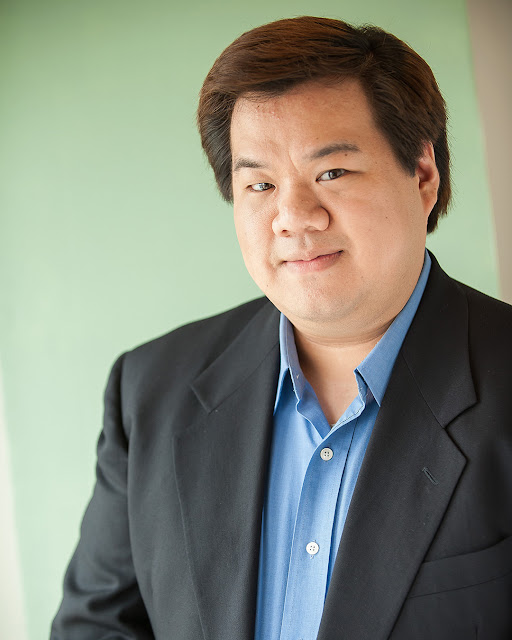Five Ways to Get the Most Out of Your Actor Training
By Peter J. Kuo
A.C.T.’s Director of the Conservatory, Peter J. Kuo, offers these five tips to actors who are thinking about engaging in any form of rigorous or intensive training. Whether it’s for two weeks or five years, these tips may help you get the best out of your actor training.
1. Take Advantage of Access to Opportunity
When you join an extensive training program, you gain access. Reach out to staff members you’re interested in chatting with, see if you can sit in on other classes, try to grab coffee/tea with an artist or faculty member that you’re not working with but want to get to know. See if there are jobs or volunteer opportunities, or investigate the library and archives. The worst anyone can say is “no.” And a “yes” can open up access to so much opportunity!
2. Learn How to Take and Decipher Feedback
Not all teachers are the best communicators, but they have knowledge, information, and insight you’re seeking. Learn to take the feedback you are given, process it, and be able to ask for clarity if something doesn’t make sense. Rejecting, being defensive, or closing yourself off to feedback can tell a teacher you don’t trust what they have to offer you, and cause them to limit their feedback to you in the future. By all means, invite a conversation if something feels problematic.
3. Spend Time Learning How You Learn
Everyone learns differently—some people absorb better through reading, others through watching, and others still through doing. Some people need to stay active, while others need meditation to process, and others need to journal. The more you understand how you learn, the better you can understand why you might be struggling to learn something and try a different approach, or explain to a teacher why you’re struggling.
4. Set Up Expectations and Dream Big While Expecting Reality
Understand the opportunities and limitations an institution can provide you. You can’t walk into a McDonalds and expect a prime rib, but you also can’t walk into a steakhouse and expect a Big Mac. However, the steakhouse may be able to prepare a burger, if you ask. Every training program has advantages and limitations, so don’t expect something it can’t deliver, but ask for something you think you need and see what they can provide.
5. Make Sure You’re Ready for Training
Only you can decide if you’re ready to go into training. Here are some things to consider assessing before you decide: finances, time, mental and emotional support, an interest and willingness to learn and grow in unexpected ways, patience, self-analysis, critical thinking skills. You may not have all these things yet, and some you may gain through your training process. It’s important to know what you’re walking in with—and what you’re walking in without and hoping to gain.
Learn more about A.C.T.’s Conservatory and Actor Training programs at act-sf.org/conservatory.
A.C.T.’s Director of the Conservatory, Peter J. Kuo, offers these five tips to actors who are thinking about engaging in any form of rigorous or intensive training. Whether it’s for two weeks or five years, these tips may help you get the best out of your actor training.
 |
| Peter J. Kuo |
1. Take Advantage of Access to Opportunity
When you join an extensive training program, you gain access. Reach out to staff members you’re interested in chatting with, see if you can sit in on other classes, try to grab coffee/tea with an artist or faculty member that you’re not working with but want to get to know. See if there are jobs or volunteer opportunities, or investigate the library and archives. The worst anyone can say is “no.” And a “yes” can open up access to so much opportunity!
2. Learn How to Take and Decipher Feedback
Not all teachers are the best communicators, but they have knowledge, information, and insight you’re seeking. Learn to take the feedback you are given, process it, and be able to ask for clarity if something doesn’t make sense. Rejecting, being defensive, or closing yourself off to feedback can tell a teacher you don’t trust what they have to offer you, and cause them to limit their feedback to you in the future. By all means, invite a conversation if something feels problematic.
3. Spend Time Learning How You Learn
Everyone learns differently—some people absorb better through reading, others through watching, and others still through doing. Some people need to stay active, while others need meditation to process, and others need to journal. The more you understand how you learn, the better you can understand why you might be struggling to learn something and try a different approach, or explain to a teacher why you’re struggling.
 |
| Students at A.C.T.'s Summer Training Congress. Photo by Macie Davies. |
4. Set Up Expectations and Dream Big While Expecting Reality
Understand the opportunities and limitations an institution can provide you. You can’t walk into a McDonalds and expect a prime rib, but you also can’t walk into a steakhouse and expect a Big Mac. However, the steakhouse may be able to prepare a burger, if you ask. Every training program has advantages and limitations, so don’t expect something it can’t deliver, but ask for something you think you need and see what they can provide.
5. Make Sure You’re Ready for Training
Only you can decide if you’re ready to go into training. Here are some things to consider assessing before you decide: finances, time, mental and emotional support, an interest and willingness to learn and grow in unexpected ways, patience, self-analysis, critical thinking skills. You may not have all these things yet, and some you may gain through your training process. It’s important to know what you’re walking in with—and what you’re walking in without and hoping to gain.
Learn more about A.C.T.’s Conservatory and Actor Training programs at act-sf.org/conservatory.

